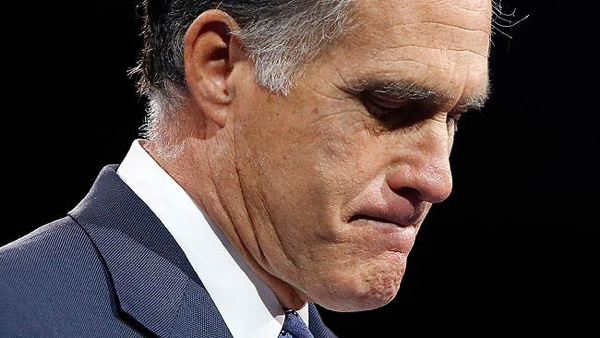Movie review by Greg Carlson
While it lacks the punch and perspicacity of Chris Hegedus and D.A. Pennebaker’s “The War Room,” Greg Whiteley’s behind-the-scenes portrait of Mitt Romney’s presidential aspirations makes for an interesting and entertaining civics lesson drama, and will be catnip to all political junkies regardless of party affiliation. Covering Romney’s bid for the 2008 Republican presidential nomination and the 2012 race versus Barack Obama, “Mitt” strongly suggests a privileged, inside view, even if the principal cast’s acute awareness of the unblinking eyes of the moviemaker’s ever-present cameras causes them to carefully mind and manage their words.
Undoubtedly, Whiteley is at his best as a really big fly on the wall observer of the Romney family talking strategy in one hotel suite after another. Mitt and Ann are joined by several of their five sons throughout the operation, and the pre- and post-debate and appearance conversations, though clearly guarded, are rich with the strategic minutiae that shape modern politics. As the first Mormon to earn a presidential endorsement from a major party, Romney’s religion comes up a handful of times, but beyond the authenticity and sincerity of his faith, little is made of the man’s denomination insofar as it had any impact on electability.
The movie does an admirable job of trusting the viewership’s basic understanding of the timeline and contours of the two campaigns. Whiteley makes judicious use of media footage captured at debates and on cable news outlets, often cutting away at precise moments when Romney or his rivals say something that will be parsed, dissected, and mulled later in private chambers. When it becomes apparent that the future isn’t as sunny as the team would like, Romney’s sons demonstrate a bottomless capacity for reframing, making comments of golden-spun, oxymoronic doublespeak, like the assertion that there’s a lot of “downside to winning.”
Missing from the movie are any substantive revelations from Romney on his 2012 GOP primary challengers and Whiteley glosses over potentially fascinating commentary on the likes of Rick Perry and Michele Bachmann. Running mate Paul Ryan, who shows up so late in the movie his sudden appearance comes as a shock, seems to be carefully reminded that what he says is being recorded. Whiteley also skips the “binders full of women” and fails to record Romney’s reactions to the now infamous “47 percent” video, although for whatever it is worth, the director says he was not there when the latter happened and not granted access to whatever conversation the team had regarding damage control.
Whiteley acknowledges the vast wealth of the Romneys a few times, and when the topic arises, the compassionate, regular guy who understands your problems is replaced by the out-of-touch, “corporations are people, my friend,” CEO elitist. This makes it difficult to feel sorry for the Romneys on nearly any level. Even when Whiteley introduces a segment on Ann Romney’s challenges with multiple sclerosis, the accompanying explanation of her “horse therapy,” a “treatment” available only to the most well-to-do, fails to generate much sympathy.
Mitt is more than once shown tidying up his surroundings (clearing off tables, picking up trash from the balcony, and carrying room service trays), leaving the viewer to wonder whether the man is really an obsessive neat freak or just putting on a good show when the servants aren’t around. Even so, movie Mitt is far more human and sympathetic behind closed doors than he was at any point during the grind of non-stop, sleep-deprived campaigning that the public saw. It’s what the film suggests about the contemporary candidate – practiced, polished, almost machine-like in his ability to know exactly how many minutes it will take to say so many words – that inspires admiration and/or pity for anybody determined enough to make it to the national stage.
